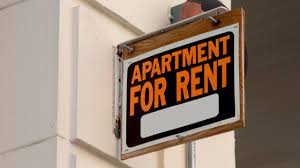Massachusetts Rent Increase Laws 2024: Key Facts for Tenants. Many people in Massachusetts are still renting as 2024 approaches. Renters who wish to safeguard their rights must be aware of the regulations pertaining to rent hikes because living expenses are rising in many areas.
Massachusetts has regulations governing rent increases and decreases. We’ll go over what every renter needs to know in this guide to handle any potential adjustments to their housing expenses.
1. Massachusetts has no state-wide rent control.
There is no law in Massachusetts that regulates rent throughout the entire state. Rent control was essentially abolished in 1994 following a statewide referendum.
This implies that, subject to certain restrictions, landlords are free to raise rents as much as they like.
Although rent control was formerly in place in cities like Boston and Cambridge, both landlords and tenants are now required to abide by the state’s fundamental regulations regarding rent increases. Fairness and clarity are the goals of these legislation.
2. Notices of Rent Increases: Appropriate Timing
Giving adequate notice is one of the most crucial guidelines when it comes to rent increases. In Massachusetts, landlords are required to notify their tenants in writing before increasing the rent. The type of lease determines when this notice must be given:
Unless the lease expressly permits rent increases in the midst of the lease period, landlords are not permitted to raise rent for tenants with leases until the contract expires. The rent will remain the same for the duration of your agreement if it has a specified duration.
When raising rent, landlords are required to give month-to-month tenants at least 30 days’ notice (or the duration of the rental period, whichever is longer).
You will have at least 30 days to decide whether to move or accept the new rent if your lease is month-to-month.
3. No Infinite Rent Increases
Although there are no laws in Massachusetts that limit rent increases, landlords are nevertheless required to go by a few fundamental guidelines in order to safeguard tenants. Increases in rent cannot be applied unfairly to some renters or as retaliation.
For example, a landlord cannot increase rent based solely on a tenant’s complaints regarding the condition of the property or the tenant’s gender, race, religion, or family circumstances.
The landlord can be subject to legal repercussions for violating anti-discrimination laws.
4. Local Trends and Fair Market Rent
Without rent regulation, Massachusetts tenants are at the mercy of market forces. In some regions, particularly in cities like Boston, rent prices have increased significantly in recent years due to high demand.
The concept of “fair market rent” determines what could be seen as an acceptable increase. Fair market rent is essentially the amount that a willing landlord and renter may agree upon given the quantity and demand in the area.
In order to determine whether a proposed price increase is reasonable, tenants should research the going rental prices in their neighborhood. Local real estate agents or websites such as Rent.com and Zillow can provide you with information on average rent costs in your area.
5. Bargaining for an Increase in Rent
Tenants have little choice but to object if rent increases. You might want to discuss the rent increase with your landlord if you receive notice of one and feel it is excessive.
Tenants that have a solid rental history and have been with the same landlord for a long time could be willing to accept a lower increase. Offering to sign a longer lease in exchange for a lower rent increase or making a commitment to perform specific maintenance tasks can be beneficial.
6. The Condition of the Property and the Rent Increase
You should consider the overall condition of the rental property before consenting to a rent increase. Landlords are required by law to maintain rental properties in a condition that permits habitation.
It might not make sense for your landlord to increase the rent until your unit’s problems—such as bug infestations, poor heating, or plumbing issues—are resolved.
7. How to Proceed If a Rent Increase Is Unaffordable
Rent increases, regrettably, have the power to evict people from their homes. You have several options if you are unable to pay the increased rent:
Seek out more reasonably priced housing. It could be time to look for a new rental that suits your budget if the price increase is significant and you are unable to discover a better offer.
Low-income tenants can receive support from a variety of housing aid programs in Massachusetts. For instance, in certain situations, the Residential Assistance for Families in Transition (RAFT) program may be able to assist with rent hikes.
Speak with a tenant rights group: You may wish to speak with a local tenant advocacy group or an attorney if you believe that a rent increase is unjust or illegal. Organizations that can offer guidance and assistance include the Massachusetts Law Reform Institute (MLRI).
8. Keep Up with Local Regulations
Although Massachusetts as a whole does not have rent control, some towns and communities are considering amending their housing laws. Laws that alter how rentals operate, such as potential measures to maintain stable rents, may be passed by certain municipal governments.
Keep an eye on local developments since they may result in new regulations or protections against rent increases.
In conclusion
You must be aware of your rights and obligations as a tenant in order to handle rent hikes in Massachusetts. Renters do have certain rights that protect them, even though landlords have the ability to raise rents.
If you are aware of how the market is evolving, know how long to give notice, and consider your options for negotiating or seeking rental assistance, you will be better equipped to face any rent rise that occurs in 2024.
Act now, and if you are unsure, consult a lawyer to ensure that you are receiving fair treatment.


 by
by 




